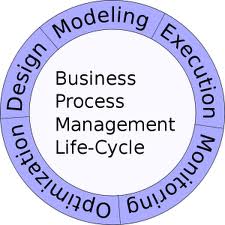Today I hear in business about many problems about development ERP Project and Software Companies with deliveries, these software projects , I believe next 10 years ERP will change with back of development into components, what is it ? Development about customizations with components of Software Architecture as SAP, TOTVS, SENIOR SISTEMAS, ORACLE with one platform as years old, all requirements of users, stakeholders to ERP implementation and one delivery with major probability of success, is possible ??? Failures inflict a great deal of pain on company, senior management of the companies have to do their homework to hire a project manager of Information Technology who have experience in software development.
Whether it’s implementation cost overruns, software that doesn’t support the business, or lack of employee acceptance, ERP failures entail very negative consequences. So why do over 65% of enterprise software implementations fail?
Some Lessons from ERP Implementation Failures
ERP implementation failures inflict a great deal of pain on organizations. Whether it’s implementation cost overruns,
software that doesn’t support the business, or lack of employee acceptance, ERP failures entail very negative
consequences. So why do over 65% of enterprise software implementations fail?
Our experience helping clients clean up projects they or their software vendors have failed to manage, along with our
expert witness support to ERP lawsuits, has taught us quite a bit about the reasons for ERP failure.
- Lack of software fit. The first stumbling block formany failed implementations is as ever emis alignment between software functionality and business needs. There are hundreds of enterprise software options in the marketplace, so it is important to navigate carefully and find the product with the right fit. Too many failed implementations neglected to engage in an effective ERP software selection process.
-
Unrealistic implementation expectations. Enterprise software sales reps often understate the level ofre sources
required to make the implementation successful, so many companies fail to budget adequate time, money,
resources, and external consulting support to make the project successful. In addition, failed implementations often
neglect to include key activities in their implementation project plan, such as organizational change management,
business process and workflow definition, and thorough conference room pilots.
-
Lack of executive buy-inand support. Executive buy-in involves more than signing the checks and delegating
the implementation to a project team. It involves defining clear implementation objectives, establishing project
governance, and making tough decisions when needed. This is arguably the most important, because it directly
affects the other four failure points.
-
Propensity to customize software rather than leverage standard functionality.Nearly every failed
implementation I have seen suffers from this problem, and it is often because of a failure to select the right software
in the first place (see #1 above). The more you customize the software, the longer it’s going to take to implement,
the more it’s going to cost, and the more risk you introduce into the project. It’s typically not realistic to completely
abstain from customization, but changes to the software should be devoted only to key areas of competitive
advantage or differentiators. If you aren’t able to limit customization to those areas, then you should either find
another ERP software solution or back up and rethink your strategy.
- Lack of ERP implementation expertise.Implementations are tough and a team with tested battle wounds is going to dramatically increase your likelihood of success. As we often tell our clients, the fastest and cheapest way to implement enterprise software is to do it right the first time. Failed implementations are more likely to have inexperienced team members who don’t know enough to know what they don’t know.




No comments:
Post a Comment